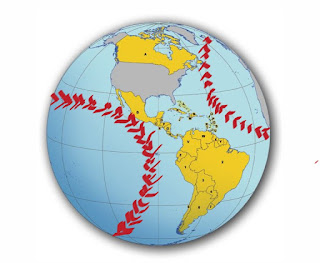Baseball is not just a game: it's big business. And like much business, these days, it operates globally. One way is in its search for talent.
Twenty percent of professional baseball players come from the Dominican Republic, a country that ranks 132 in area and 85th in population. How could such a small country produce so many expert ballplayers? It's because thousands of boys train full time in baseball facilities for a chance to sign a major league contract. Critics of the system are concerned about the targeting and possible exploitation of poor children. For an excellent overview of the issues, as well as a few reforms in the last couple of years, see Arturo J. Marcano & David P. Fidler, Ballplayer: Pelotero—Major League Baseball, Human Rights, and the Globalization of Baseball, ASIL Insights, Aug. 22, 2012.
The authors discuss a documentary, Ballplayer: Pelotero, that was released last month. The film follows two sixteen-year-old ballplayers trying to sign on with teams in 2009. The film's website has a trailer. The film is available on iTunes and Amazon; a DVD will be released in September.
Several years ago, the authors wrote a book on this topic: Stealing Lives: The Globalization of Baseball and the Tragic Story of Alexis
Quiroz (2002), publisher's page. It's available through Summit; here's the catalog record.
The Indiana Journal of Global Legal Studies devoted an issue to Baseball in the Global Era: Economic, Legal, and Cultural Perspectives (volume 8, number 1, Fall 2000). It's available on HeinOnline (UW restricted). You can start with David P. Fidler's Introduction.
Graphic adapted from Western hemisphere map from U.S. Dep't of State.
Source for rank by area and population: CIA World Factbook.



No comments:
Post a Comment